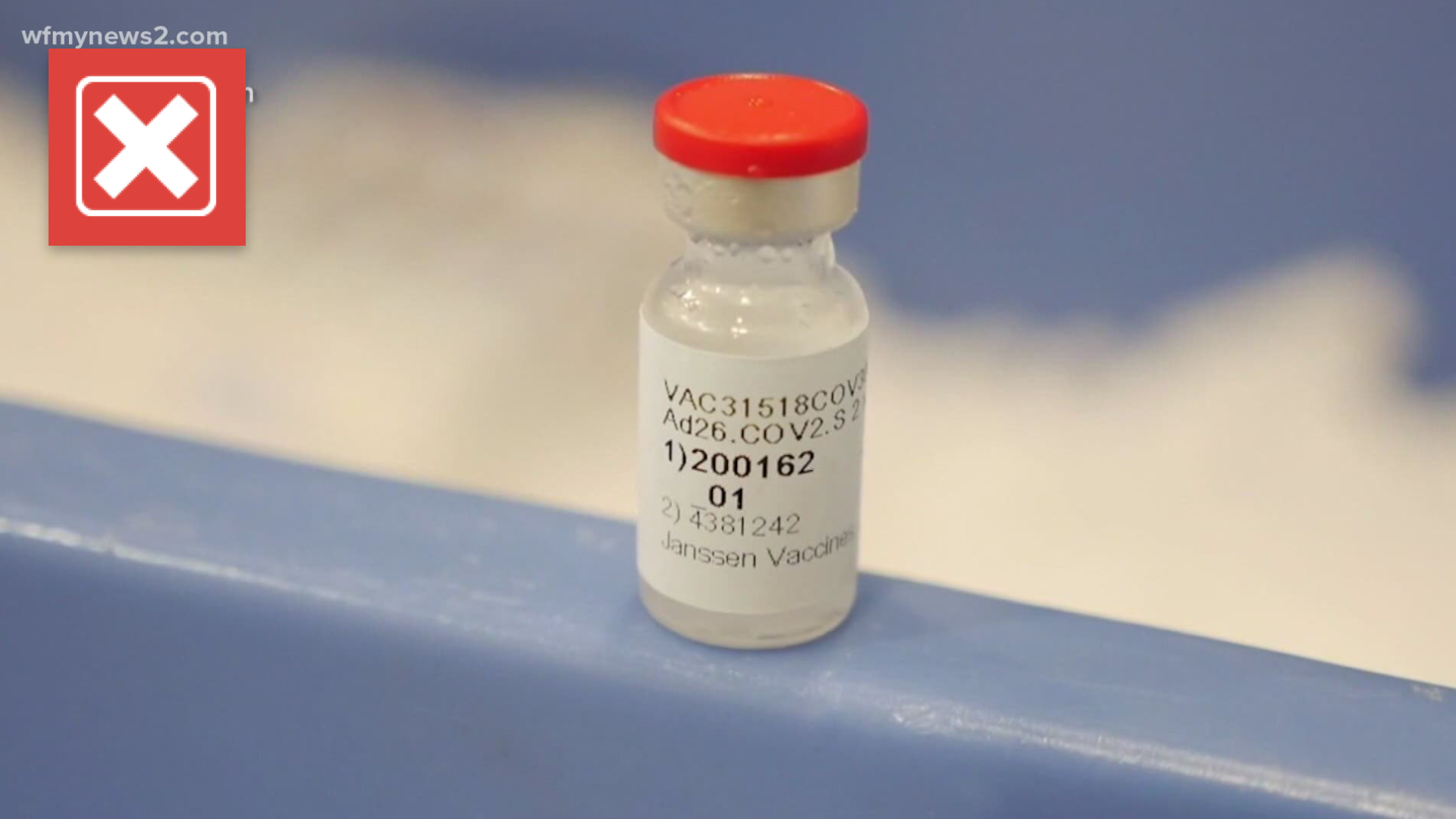GREENSBORO, N.C. — Johnson and Johnson COVID-19 vaccinations are on pause as the FDA investigates six cases of blood clots in people vaccinated with the one-dose shot.
North Carolina health leaders said their decision to follow that new guidance is cautionary.
Top Triad doctors said the most important thing to remember is that we still don't know for sure that those blood clots are in fact linked to the J&J vaccine.
First, experts need to figure out what's causing these clots.
"Basically what that antibody could be doing is induce clotting when there's no need for the body to be doing that," Wake Forest Baptist Health Infectious Disease Expert Dr. Christopher Ohl said.
Dr. Ohl said while it's unclear whether that is the case with the Johnson and Johnson vaccine, that appears to be what is happening with the AstraZeneca vaccine.
Use of the AstraZeneca vaccine in Europe was paused after blood clotting concerns. Those vaccinations resumed after review.
Only six women of the six million people who took the Johnson and Johnson vaccine got blood clots.
Cone Health Infection Prevention Medical Director Dr. Cynthia Snider said she does not believe people who got the J&J shot should be concerned.
"We really believe that these instances are rare. I don't think that it would've been picked up in a clinical trial because the rate is one and 1 million," Snider said.
Dr. Ohl said the risk of having a blood clot due to the Johnson and Johnson vaccine is a lot lower than the risk of dying of COVID-19.
Each of the six cases occurred within six to 13 days of getting the shot and doctors said you would not miss the symptoms.
"Severe headaches, bad bad abdominal pain, swelling of the leg," Dr. Ohl said, "I wouldn’t be trying to figure out if every little thing that’s going on is your body could be related."
No clots were seen with either of the two-dose vaccines, Pfizer and Moderna. Hundreds of millions of doses of those two vaccines have been given across the country.
Experts said even if clotting risks are linked to the J&J vaccine, we may keep using it but it may also be recommended that some people get a different one.
"There are other vaccines to sometimes that have adverse effects with them because the benefit of the vaccine outweighs the risk," Dr. Ohl said.
If the cases are not linked to the J&J vaccine, doctors agree pausing to figure out what's the right decision.
"We have to make sure that the vaccines are safe," Dr. Snider said.

